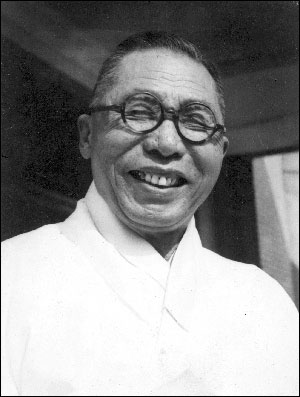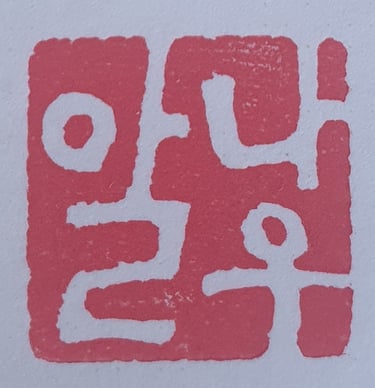Kim Gu - Baekbeom


Kim Gu, also known as Baekbeom (백범), is one of the most respected figures in modern South Korean history. He is celebrated for his pivotal role in Korea’s struggle for independence from Japanese occupation (1910-1945) and his vision of Korean unity after World War II. A dedicated patriot, intellectual, and activist, Kim Gu is considered a national hero in South Korea for his unwavering commitment to the cause of Korean freedom and sovereignty.
Early life and initial activism
Kim Gu was born on August 29, 1876, in Teot-gol village, Hwanghae-do, in what is now North Korea. His birth name was Kim Changsoo. Growing up during a period of foreign imperial pressures, he witnessed the challenges Korea faced in maintaining its sovereignty. From a young age, he developed a strong sense of patriotism, which fueled his rejection of foreign domination.
A significant event in his youth was his killing of a Japanese man in 1896, an act he saw as a response to the national humiliation inflicted by Japan. This incident led to his imprisonment, from which he later escaped in 1898, dedicating his life thereafter to the Korean independence cause.
Struggle for independence
Following Japan’s formal annexation of Korea in 1910, Kim Gu joined several underground independence movements. He participated in the March 1st Movement in 1919, a mass protest against Japanese rule that marked a turning point in Korean resistance. Kim Gu fled to China to avoid Japanese reprisals, joining many other independence leaders in exile.
During his exile, he became a key leader within the Provisional Government of the Republic of Korea, founded in Shanghai in 1919 to represent a free Korean government. In 1926, Kim Gu was appointed president. This role was both symbolically and practically significant, as the Provisional Government was the center of diplomatic and military efforts for Korean independence. Under his leadership, he coordinated resistance operations against the Japanese Empire, rallying international support and resources for the Korean cause.
Baekbeom: The philosopher and patriot
In addition to his activism, Kim Gu was also a thinker and philosopher. In his autobiography, Baekbeom Ilji (백범일지), or The Journal of Baekbeom, he shared his ideals and dreams for a free Korea. He expressed his deep love for his country, a desire to see Koreans united, and a vision of a prosperous, peaceful, and egalitarian Korea.
His work also explored universal values, such as justice, freedom, and human dignity. He believed that independence should be achieved not only through strength but through moral and spiritual improvement. In Baekbeom Ilji, he wrote one of his most famous lines: “My dream is not power, but culture.” He aspired for Korea to be strong, not through military might, but through cultural and moral influence.
The end of Japanese occupation and the fight for unification
In 1945, Japan’s surrender ended 35 years of occupation in Korea. However, liberation was quickly followed by the country’s division into two zones, with the United States overseeing the South and the Soviet Union occupying the North. Kim Gu strongly opposed this division, fearing it would fragment the Korean people and weaken the nation.
In the years that followed, Kim Gu undertook efforts to promote unification. In 1948, despite tensions, he even traveled to North Korea to meet with North Korean leaders in a bid to prevent civil war and keep Korea united. This bold gesture demonstrated his commitment to Korean unity. However, his efforts ultimately failed amid intensifying ideological conflicts, and in 1950, the Korean War erupted, plunging the nation into a tragic conflict.
Assassination and legacy
On June 26, 1949, Kim Gu was assassinated in his office in Seoul by Ahn Doo-hee, a young South Korean lieutenant. The exact motivations for the assassination remain debated: some believe it was an individual act, while others suspect it was orchestrated to remove an influential leader who opposed the government and Korea’s division.
His assassination sent shockwaves across Korea, and Kim Gu became a martyr for unification and the independence cause. His legacy, however, endures. Today, he is honored for his unyielding patriotism, his vision for a united and prosperous Korea, and his personal sacrifices for the nation. In South Korea, monuments, museums, and memorials commemorate him, and Baekbeom Ilji is studied in schools to pass down his ideals to future generations.
Legacy and continuing influence
Kim Gu remains a central figure in contemporary Korean politics and culture. His vision of an independent, unified Korea continues to inspire many South Koreans. His dedication has left a lasting impact on the Korean national consciousness, and he is still a respected figure whose life and ideals serve as reminders of the importance of independence, sovereignty, and peace.
Though he fought tirelessly for a united Korea, the division persists, and many Koreans view Kim Gu’s dream as unfinished. However, his life and work continue to fuel the desire for reunification and peace between the North and South.
Kim Gu is honored on Baekbeom Memorial Day, a day of ceremonies and readings of his writings that celebrate his legacy. This national hero remains, for many, a model of integrity and patriotic devotion, embodying the struggles and aspirations of the Korean people in their quest for justice, freedom, and peace.
Conclusion
Kim Gu is an eternal symbol of Korean resistance, a pioneer of unification, and an advocate for peace and Korean culture. His legacy illustrates the power of commitment to independence and unity, values he upheld to the end of his life. His contribution to Korean identity and history remains immeasurable, and he is celebrated as one of Korea’s greatest heroes.

